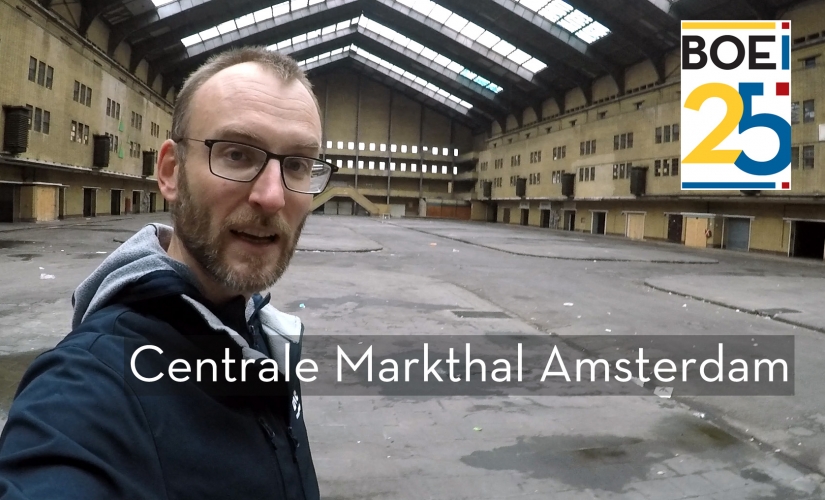
May 5, 2020
Traces from the war in the Markthal.
For those who look closely, historical buildings often hold unexpected traces from the past. BOEi ensures that these stories don't simply vanish and conducts research to uncover them.
This spring, Jobbe Wijnen set out on behalf of BOEi to explore the Central Markthal. During a full-day ‘UrbEx’ archaeological investigation, he made a remarkable discovery from the war era.
During World War II, the German occupiers exploited the city markets and the Central Market to gain control over Jewish entrepreneurs in Amsterdam. A section of the Central Market became the “Jewish Market,” and Jewish visitors were marked with a red letter ‘J’ on their market pass. The then-director, Mr. Van der Laan, who was Jewish, was dismissed in 1941 and would die in a concentration camp in 1944. Although the market was under the grip of the occupiers, it was also a hub of resistance. Through the Central Market, efforts were made to prevent Jewish people from being transported. False documents were used to “prove” their indispensability to the food supply of Amsterdam.
In the cellars of the market hall, many Jewish citizens found refuge until after the liberation. Despite the presence of a unit of German soldiers stationed on one of the piers in 1943, the German authorities never discovered these hiding individuals. After the war, a monument was unveiled for this history in the presence of Sam de Hond (1914-2002), one of the Jewish market traders who survived the war and played an important role in the resistance. However, the modest Sam De Hond refused to unveil the monument.
Sam’s son, Maurice, documented his father’s stories in a booklet. It contains the stories as Sam de Hond himself told them after the war: “After the war, a reception was organized in Marcanti because Mr. van Duinhoven had been in the service of the Market Authority for 25 years. We were good friends with the family [De Hond], and I received a special invitation. That afternoon, I went to my barber, Mr. Boomers in Wagenstraat, and a person sitting next to me asked, ‘Aren’t you Mr. De Hond?’ I replied, ‘Yes.’ ‘Do you remember me?’ that man asked. ‘No,’ I answered. Then the man took out his wallet and showed me one of those market authority cards! That’s when it clicked for me. The man said, ‘I owe it to you that I was released and went into hiding.’ I congratulated him but asked why he showed it to me so many years after the war and not earlier. He couldn’t find me and didn’t know where I was, he said. I didn’t dwell on that but said, ‘Well, you can make up for it now because tonight, I have to attend a reception for the man who issued these cards. And if he hadn’t done that, where would you be now? You’re coming with me, and I expect a simple yes as an answer, nothing else.’ And so, I arrived at the reception with this person and spoke, bringing this person forward on stage in front of a full hall. It was a tremendous success.”